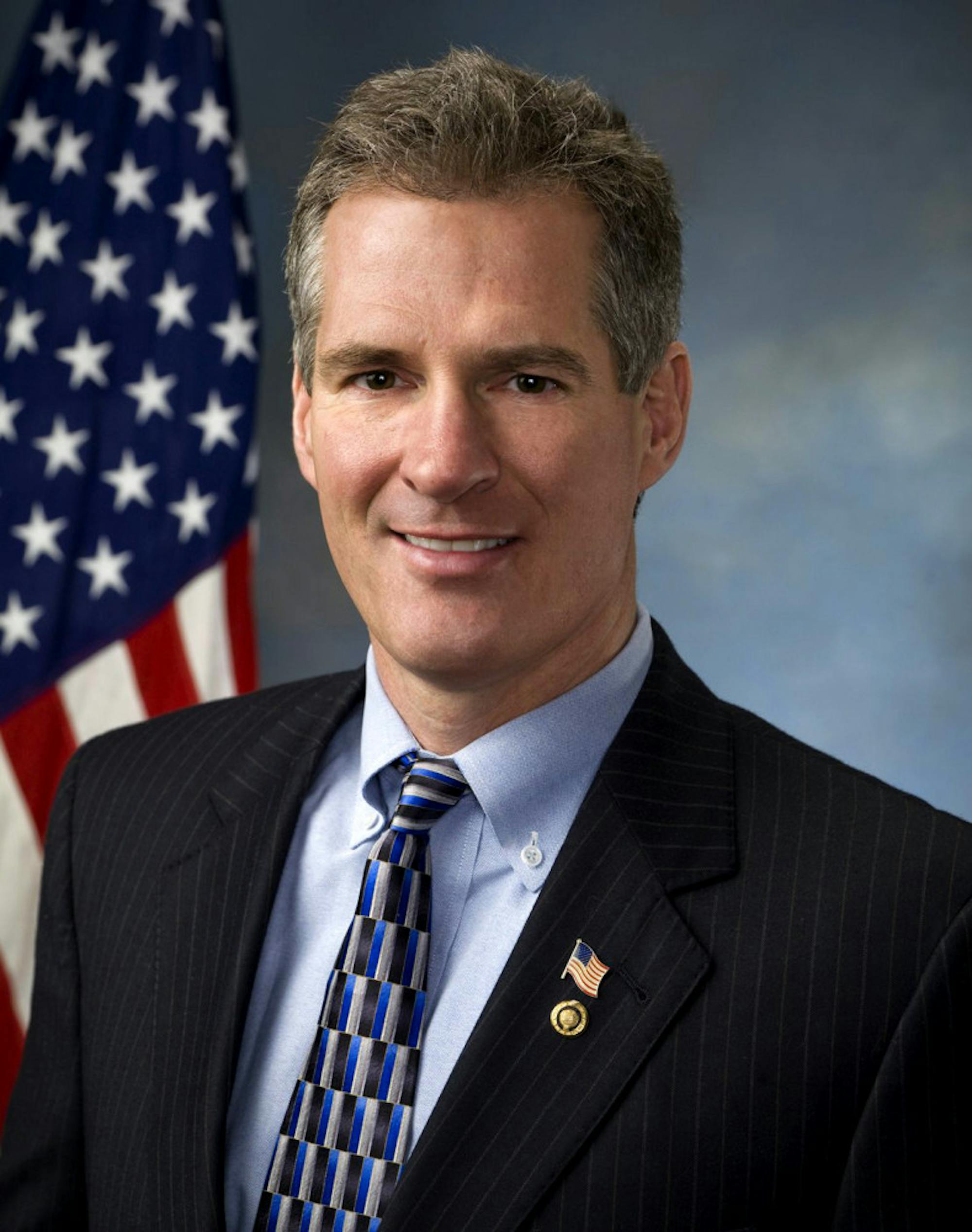Former U.S. Senator Scott Brown (R-MA) took part in a discussion with Alan Solomont (LA ’70), the Pierre and Pamela Omidyar dean of the Jonathan M. Tisch College of Citizenship and Public Service, yesterday afternoon in the Alumnae Lounge. The event was the sixth installment of the Tisch College Distinguished Speaker Series.
Solomont introduced Brown (LA '81), noting his time as a student at Tufts and his "bipartisan approach" during his career in public service. He began the discussion by asking Brown what Tufts was like while he was a student and how his time on the Hill impacted him.
Brown, who served in the U.S. Senate from 2010 to 2013, discussed the domestic problems he faced growing up and his decision to go to Tufts to live close to his family. He explained that he appreciated the markedly more diverse environment that Tufts provided, seen in his experience playing for a diverse Tufts basketball team."Through our diversity, that gave us this unique strength," he said.
His experiences at Tufts and working in a diverse environment allowed him to think outside of his comfort zone and get involved in different extracurricular activities, Brown said. He added that he was able to connect with different groups of people to better understand and appreciate the challenges they faced in their own lives, emphasizing the importance for students to be who they want to be.
"My suggestion to all of you is don't be pigeon-holed," he said.
Solomont asked Brown why his difficult upbringing did not encourage him to pursue a career with more material benefits and security, rather than public service.
"I didn't choose public service," Brown explained, noting that he went to law school after Tufts.
He noted that a negative experience with a selectman in Wrentham, Mass. encouraged him to run for office, and he was elected to Wrentham's Board of Selectmen in 1995.
Brown noted that this experience also helped develop his belief in the importance of time limits for public servants.
"Time limits are very, very important," he said.
Solomont asked Brown about his experience as a Republican in Massachusetts -- a traditionally Democratic state.
Despite his mother being on welfare and his tough upbringing, Brown said he supported the doctrine of former President Ronald Reagan in believing that those who work hard can have opportunities, start a business and grow.
"So I voted Republican at that point in time, 1980," he said.
Brown noted that he also enjoys the competition of being part of the minority political party and considers himself a "fiscal conservative," but said he has an "open mind" on social issues.
"I like being the underdog, quite honestly," he said. "I don't want to be like everyone else."
Solomont also asked Brown about working across the aisle during his time in public service.
Brown explained that one key to his collaboration was just reading up on the legislation.
"I read the bills," he said. "You got to read everything -- every word counts … If it makes sense, you do it."
Brown cited the number of bills passed during his time in the Senate over a three year period compared to bills passed by Sen. Elizabeth Warren (D-Mass.), despite his being in the minority at the time. He added that in order to cooperate, first and foremost one must look at the person, avoiding judgment, and find a common ground.
Next, Solomont asked Brown about the translation of rivalries during his time playing basketball at Tufts to political rivalries.
"Some people believe politics is a blood sport, and it is," Brown said, citing the amount of money spent on political elections. "I don’t look at my colleagues as rivals -- I look at them as fellow senators from different parts of the country that have different beliefs and strengths."
Brown added that he looks to connect with his colleagues across the aisle, while many other politicians simply do not like one another and do not want to talk with one another.
Solomont asked Brown how Congress became so divided.
"I think it really started when they went home on weekends," Brown said, noting that this decision "destroyed the fabric of the Senate."
He added that Sen. Mitch McConnell (R-Kent.) has sought to get the Senate back to regular order by letting Senate committees to do their jobs and allowing for more hearings, witnesses and possibilities for amendments.
Solomont's next question was on what it would take for a Republican to win the presidential election in 2016.
Brown responded that such a candidate must take time to try to appreciate, respect and reach out to all factions and speak with voters from lower and middle classes to find answers that go beyond increased government control.
"I think that we as individuals can do it better," he said, noting that the federal government is not a good steward of taxpayer money. "Individuals and businesses can do it better than the federal government."
Solomont's final question concerned Brown's foreign policy views.
Brown said that the United States' weakened status in foreign affairs began in Syria, when President Barack Obama drew a red line on humanitarian intervention and failed to follow through.
"Our foes don't fear or respect us," he said. "We always seems to be reactionary, not proactive. There are just so many instances."
Brown emphasized the number of conflicts across the world now, including the conflict in Ukraine, the rise of Boko Haram and increased aggression from China.
"It’s very disheartening right now, and I’m really concerned about where we’re going in that regard,” he said.
Brown then answered pre-submitted questions from audience members.
Former senator Brown discusses public service experience, bipartisanship






